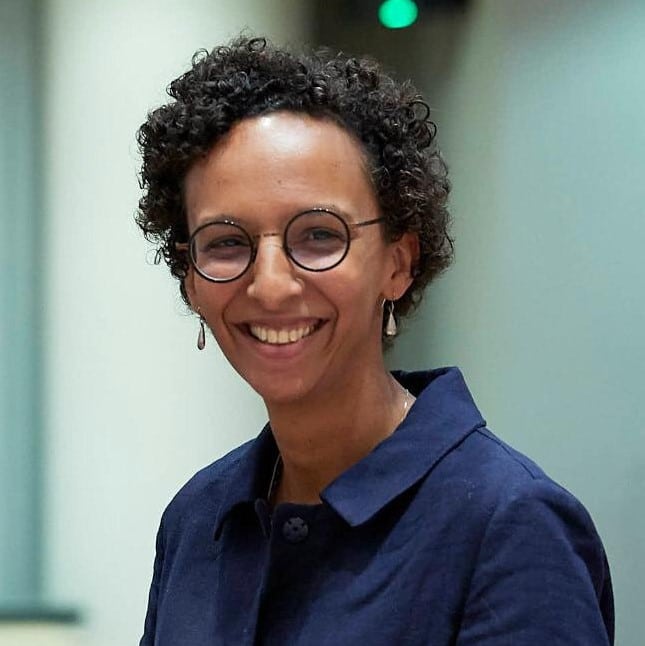From Horizon The EU Research and Innovation Magazine
6.7.24
ANTHONY KING
A Belgian region’s environmental and social conditions for research funding offer a possible model for the EU.
In the EU and Belgian capital Brussels, Barbara Trachte reflects the strengths of a third governmental layer in Europe: its numerous regions.

Barbara Trachte
Trachte is secretary of state of the Brussels-Capital Region responsible for the economic transition and scientific research. The first member of Belgium’s French-speaking Green party to be put in charge of an economic portfolio, she shows the scope for bottom-up EU policy changes.
Setting an example
Trachte helped put in place a Brussels law that, starting in 2024, has made regional subsidies for research organisations, companies, public administrations and civil society conditional on respect for social and environmental standards. She believes the EU should do the same for its €95.5 billion research programme known as Horizon Europe.
‘Sometimes you need a revolution – or at least a mini revolution,’ Trachte told Horizon Magazine.
She said that Europe’s regions have a key role to play in advancing the continent’s transition to a net-zero economy.
With the EU seeking to become climate neutral by 2050 under the European Green Deal, Horizon Europe has placed increasing emphasis on projects to hasten the switch towards clean energy and away from fossil fuels and to ensure the process is socially fair.
Already the third-biggest part of the EU budget, Horizon Europe would have even greater impact on green and social matters across the continent by following the example set by the Brussels-Capital Region.
In a nutshell, €50 million of subsidies granted annually by the region for research and innovation require recipients to respect a do-no-harm principle and have a positive impact on the environment or social equality, according to Stephanie Lepczynski, who is Trachte’s policy adviser.
‘We are showing the way and we hope that this can influence the European Commission by encouraging it to put environmental, social and governance criteria into the eligibility of Horizon projects,’ Lepczynski said at the European Research and Innovation Days event in Brussels on 20-21 March 2024.
Secrets to success
Gender and transborder-cooperation requirements currently in place for EU funding help ensure greater diversity in research teams and produce scientific results that better reflect the make-up of society, according to Lepczynski.
She said that social and environmental conditionality in Horizon Europe would force researchers systematically to check that they’re acting for the common good and help ensure that funding advances EU green and social goals.
Trachte said such conditions will also be merited in the successor programme of Horizon Europe, which runs for seven years through 2027.
‘I wish for the next EU framework programme to decide the same – to have a greater impact and make a bigger contribution to the objectives of the European Green Deal,’ she said.
For Trachte, EU projects can have the most impact where academic, industry, government, civil society and the environment interact.
This is known as the “quintuple helix” approach to innovation. It has led governments increasingly to prioritise public involvement in innovation processes.
‘This ensures that research is rooted in society and geared towards finding solutions to today’s major societal challenges such as climate degradation, growing socio-economic inequalities or democracies,’ Trachte said.
Mission driven
She singled out as particularly important the five Horizon Europe “Missions”: adapting to climate change, fighting cancer, restoring oceans, cleaning up soil and establishing 100 climate-neutral and smart cities by 2030.
‘The five Missions are a very innovative tool to make the societal challenges stand out – in particular the triple crisis of climate, biodiversity and pollution and the health challenges related to it,’ Trachte said.
In Brussels, the Climate-Neutral and Smart Cities Mission was notably successful in bringing together regional and local administrations as well as other partners from the private sector.
‘The enthusiasm created behind the Missions has mobilised many different actors,’ Trachte said.
See the full article here .
Comments are invited and will be appreciated, especially if the reader finds any errors which I can correct.

five-ways-keep-your-child-safe-school-shootings
Please help promote STEM in your local schools.
